
After you build a sport plane, there are a couple things you need to do before you head off to the flying field. For your engine to operate properly, you first have the break it in, and before doing that, it’s important to balance your propeller. Why? Most, if not all, propellers will be out of balance when you buy them. Some will be close to being balanced, others not so much. The advantage of flying with a properly balanced propeller is the elimination of or a great reduction in vibration. Like the wheels on your car, the effects at low rpm are almost unnoticeable, but as the rpm increases so too does vibration. This adds to the wear and tear on your engine’s internal parts and bearings as well as the airplane’s airframe.
In addition, your airplane will have better performance with a smooth-running engine and propeller. With glow engines, less vibration means more of its power is transmitted to the prop to produce more thrust. With electric airplanes, it has a similar effect, and you’ll also get more flight time from your battery packs.
WHAT’S NEEDED
All you need to true up your propellers is a high-quality, precise prop balancer, like the one sold by Du-Bro Products; some sandpaper; some Zap CA glue and kicker; and a prop reamer. We like to use a sanding bar with 100-grit sandpaper as it provides a very smooth surface.
LET’S GET STARTED
This story is from the January 2022 edition of Model Airplane News.
Start your 7-day Magzter GOLD free trial to access thousands of curated premium stories, and 9,000+ magazines and newspapers.
Already a subscriber ? Sign In
This story is from the January 2022 edition of Model Airplane News.
Start your 7-day Magzter GOLD free trial to access thousands of curated premium stories, and 9,000+ magazines and newspapers.
Already a subscriber? Sign In
Legend Hobby / Seagull Models - Cessna Grand Caravan 208
The Cessna Grand Caravan 208 is a legend in aviation circles. A single engine utility aircraft that punches up with capabilities that rival many twin engine aircraft in its class. Its seemingly simple configuration belies its near extreme utility.
PROPER CG LOCATION FOR AEROBATICS
If you are getting into aerobatics and are starting to perform more advanced maneuvers, it is time to discuss ways you can not only become a better pilot, but how you can also improve the flight characteristics of your airplanes.
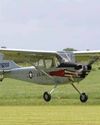
Legend Hobby 13-Foot L-19 Bird Dog/ Cessna O-1
This famous multi-mission single engine observation aircraft served from 1950-1974. From calling out target locations to providing intel/recon information, the Bird Dog was a valued asset in both the Korean War and Vietnam.
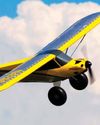
EARN YOUR WINGS
10 Tips for First-Flight Success
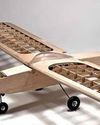
Old School Model Works Fifty Six
The Fifty Six takes its design cues from the original .09- to .15-size Carl Goldberg Falcon 56 of the 1960s. Reworked to incorporate modern, lasercut techniques to make kit building better than ever.
FLYING TWINS Multi-engine warbirds made easy
Let’s face it, there’s just something extra special about twin-engine RC aircraft. Most modelers stop what they’re doing when a twin fires up on the flightline.
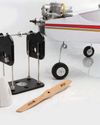
HOW TO BALANCE PROPELLERS
Four easy steps to increase performance and reduce vibration
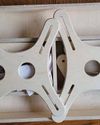
PRODUCT REVIEW: RC PLANE STANDS BENCHTOP MODEL
I’m a sucker for shop stuff. I buy tools I will probably never use just because they are cool, or I might need to use them someday. When Glen from RC Plane Stands reached out about a review, however, I knew as soon as I browsed their website that I would be receiving something I would use a lot, maybe even daily.
SPIRIT OF RHINEBECK AWARD WINNER
A close up of Norman Malinowski’s 1/3-scale Albatros
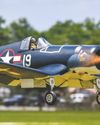
CENTER OF GRAVITY BASICS
The secret to a plane that flies well